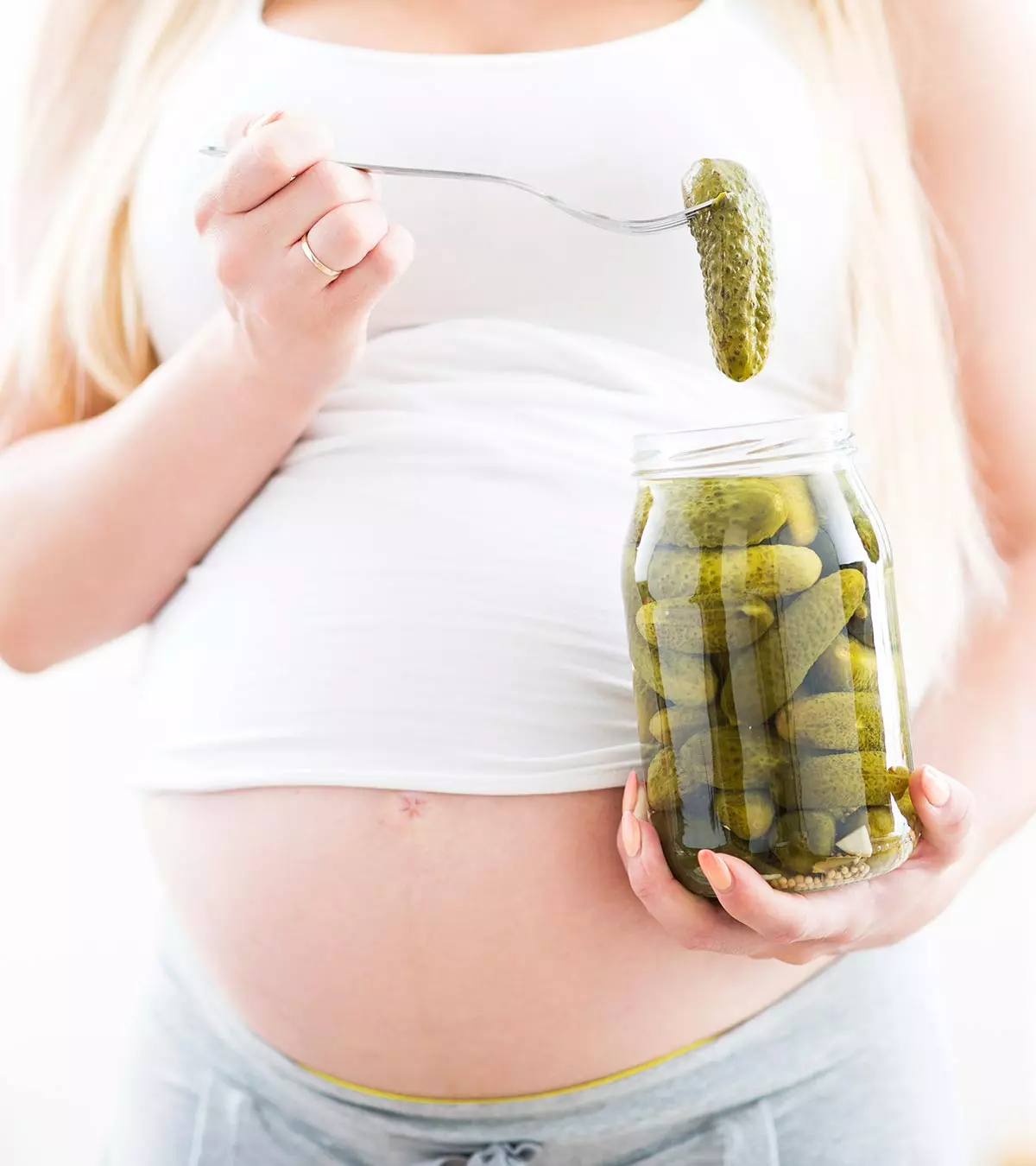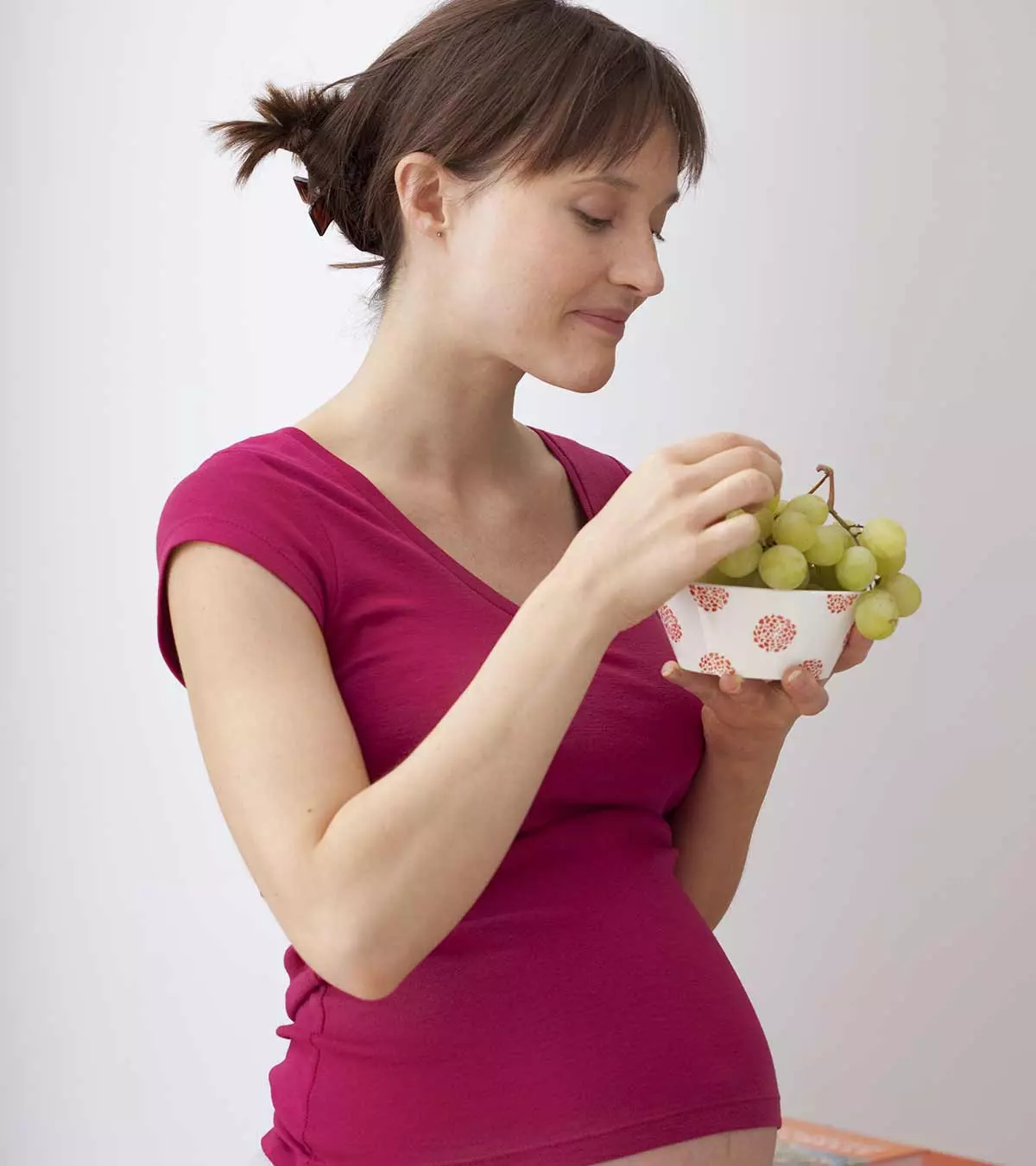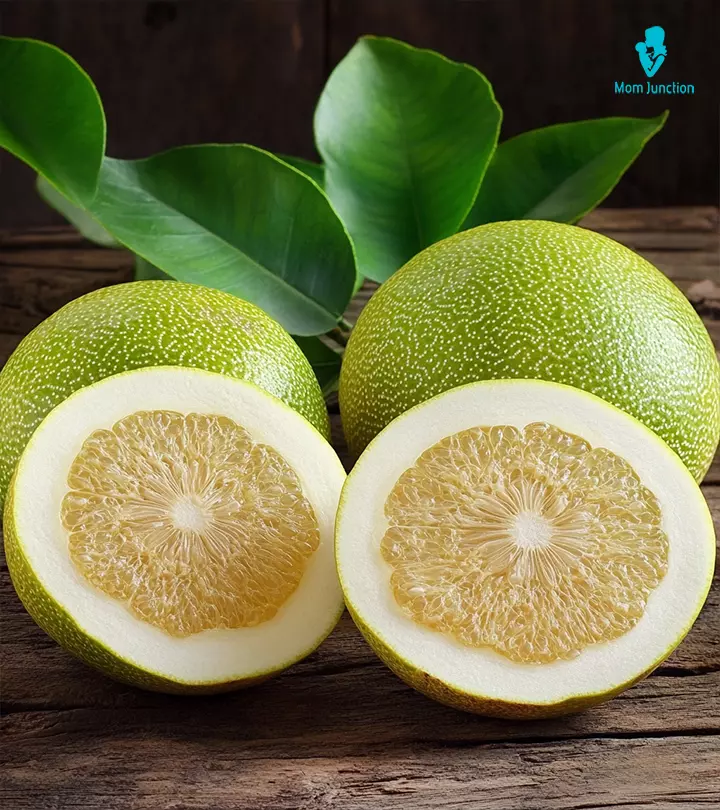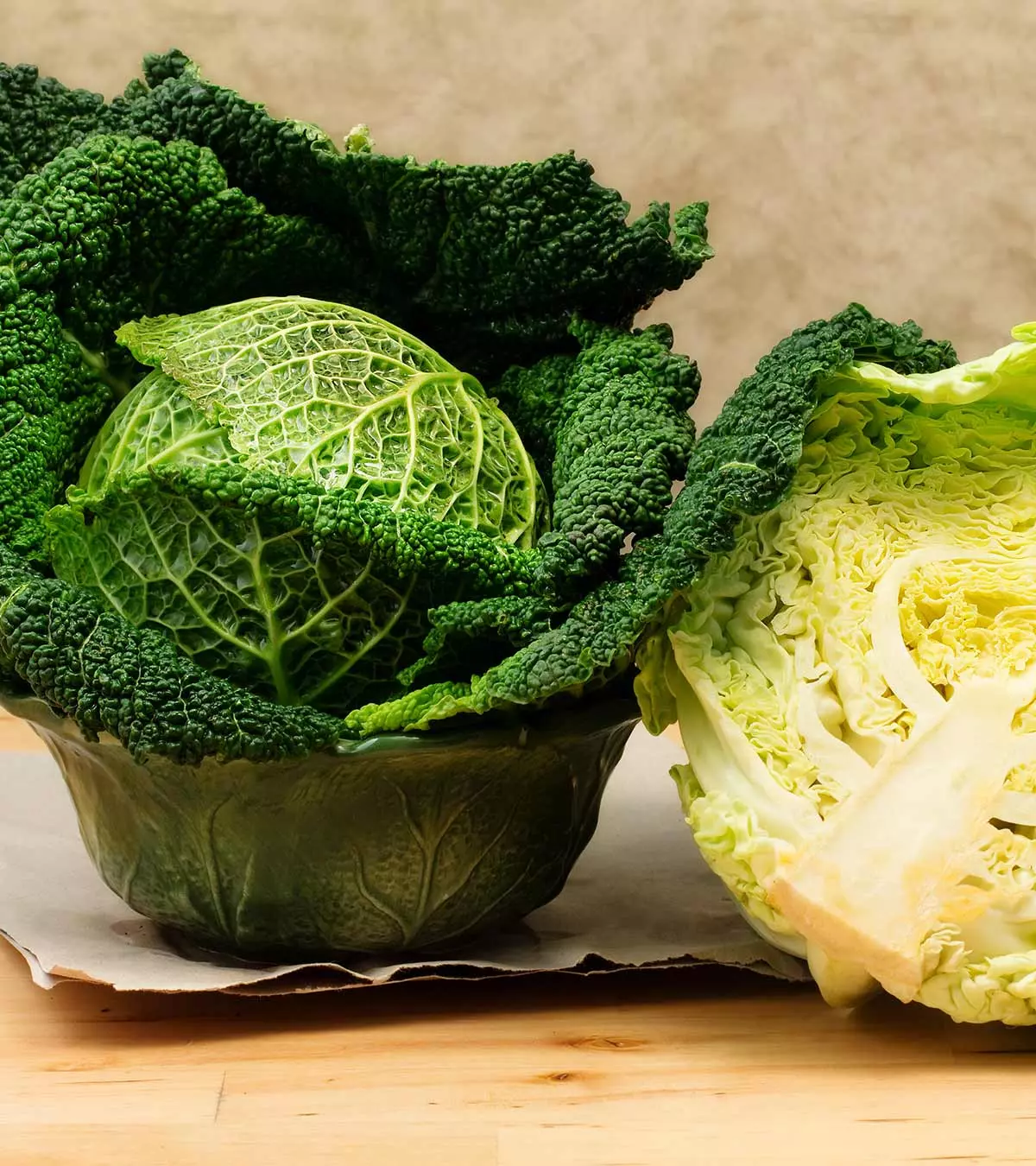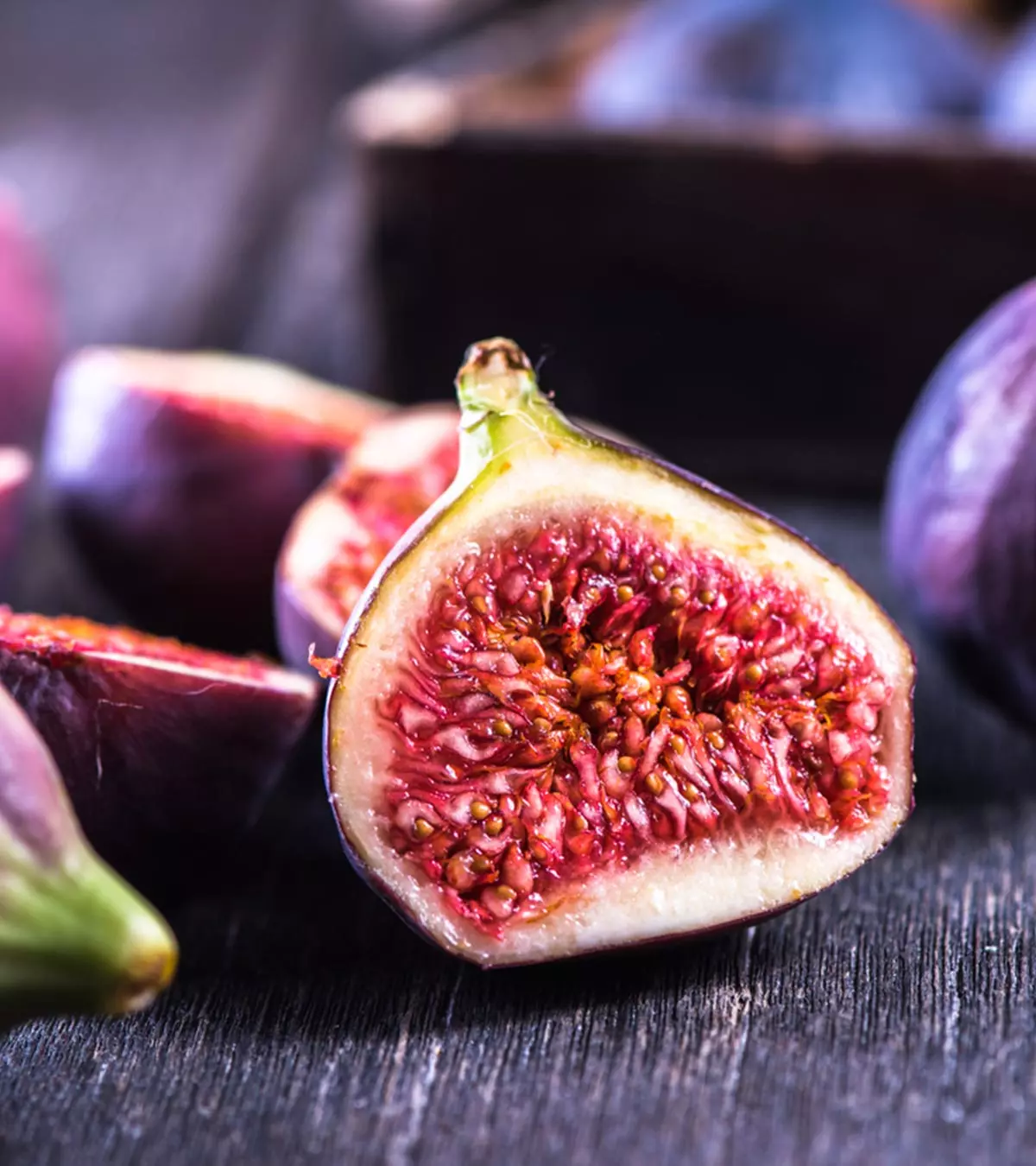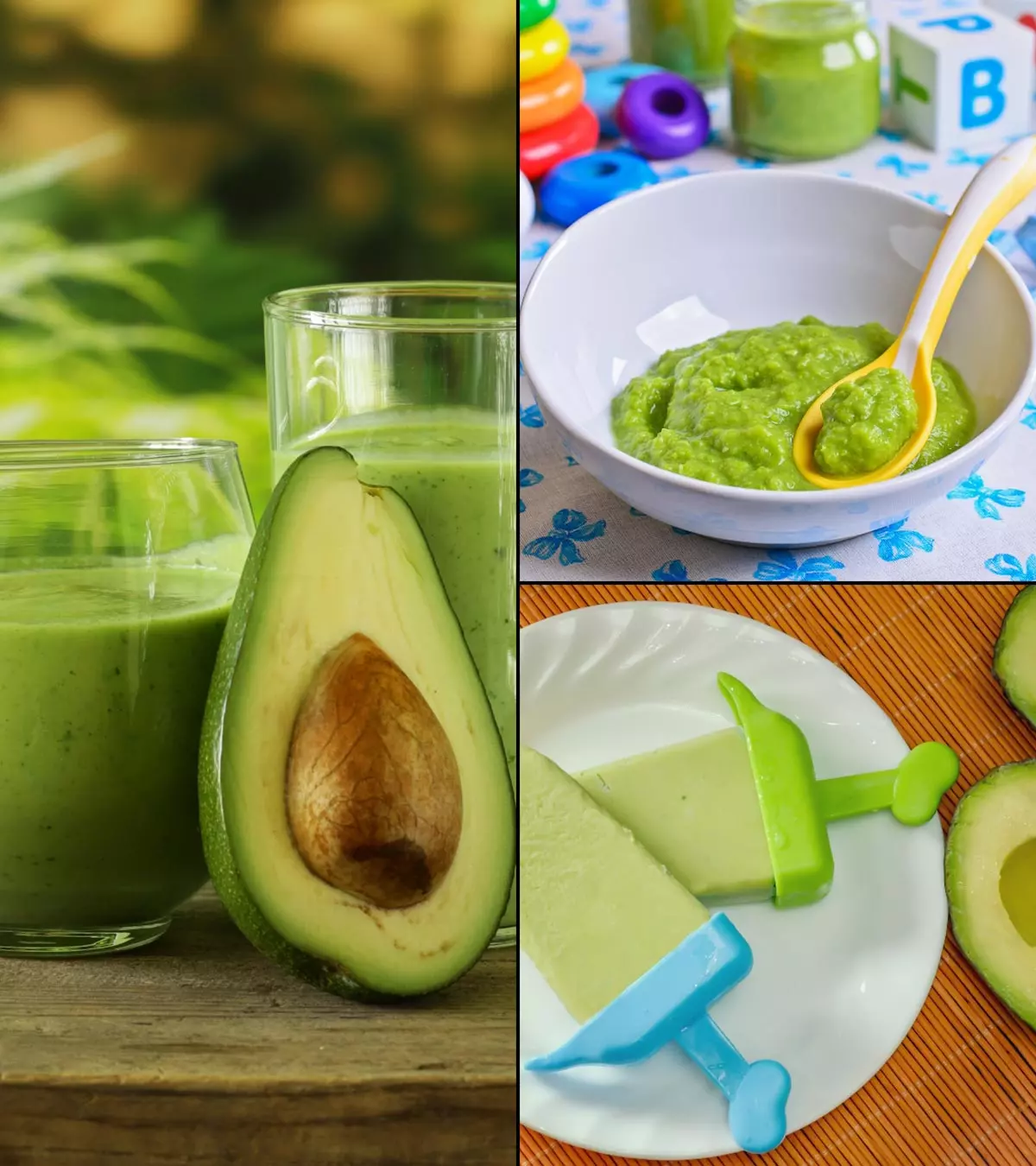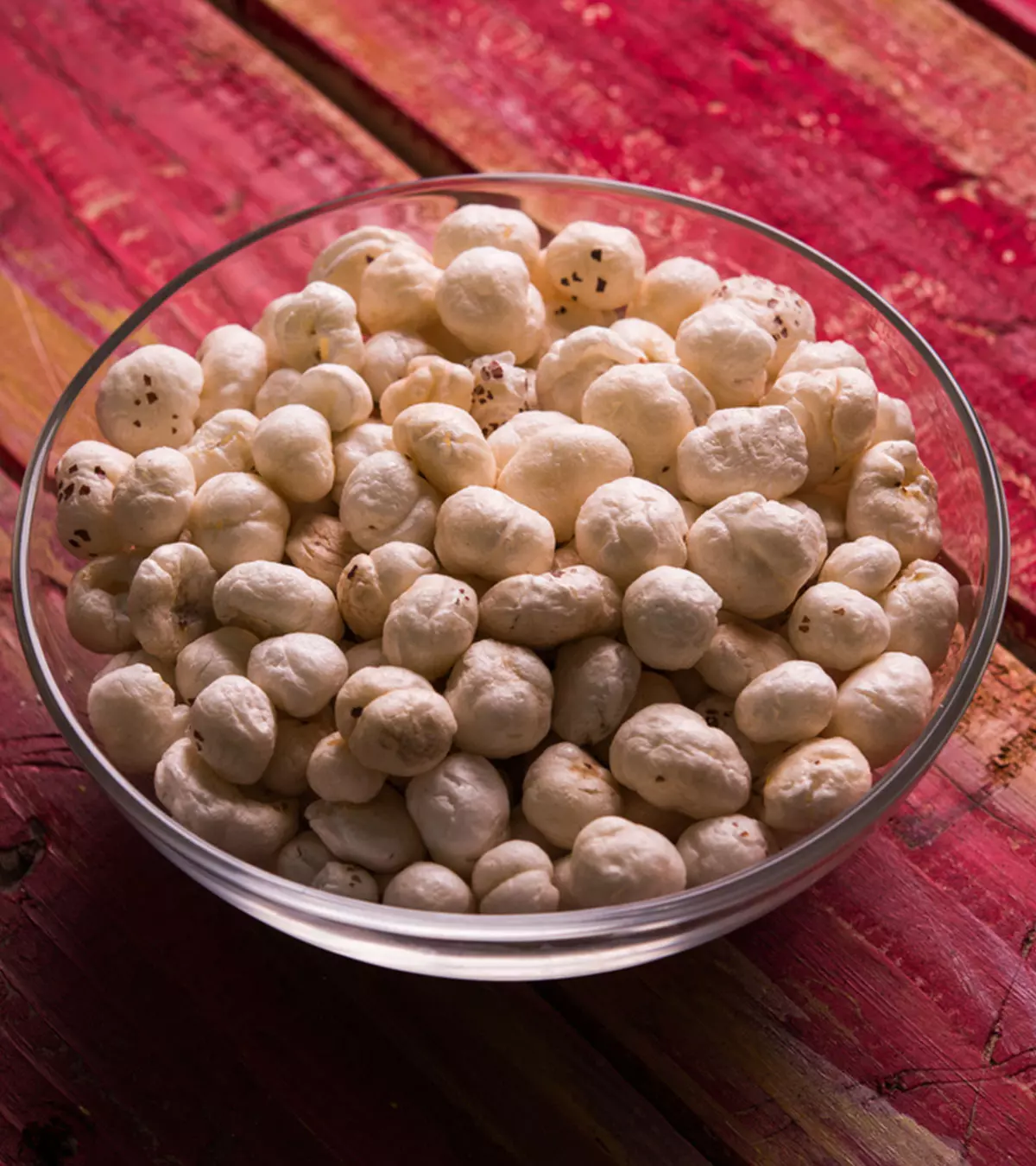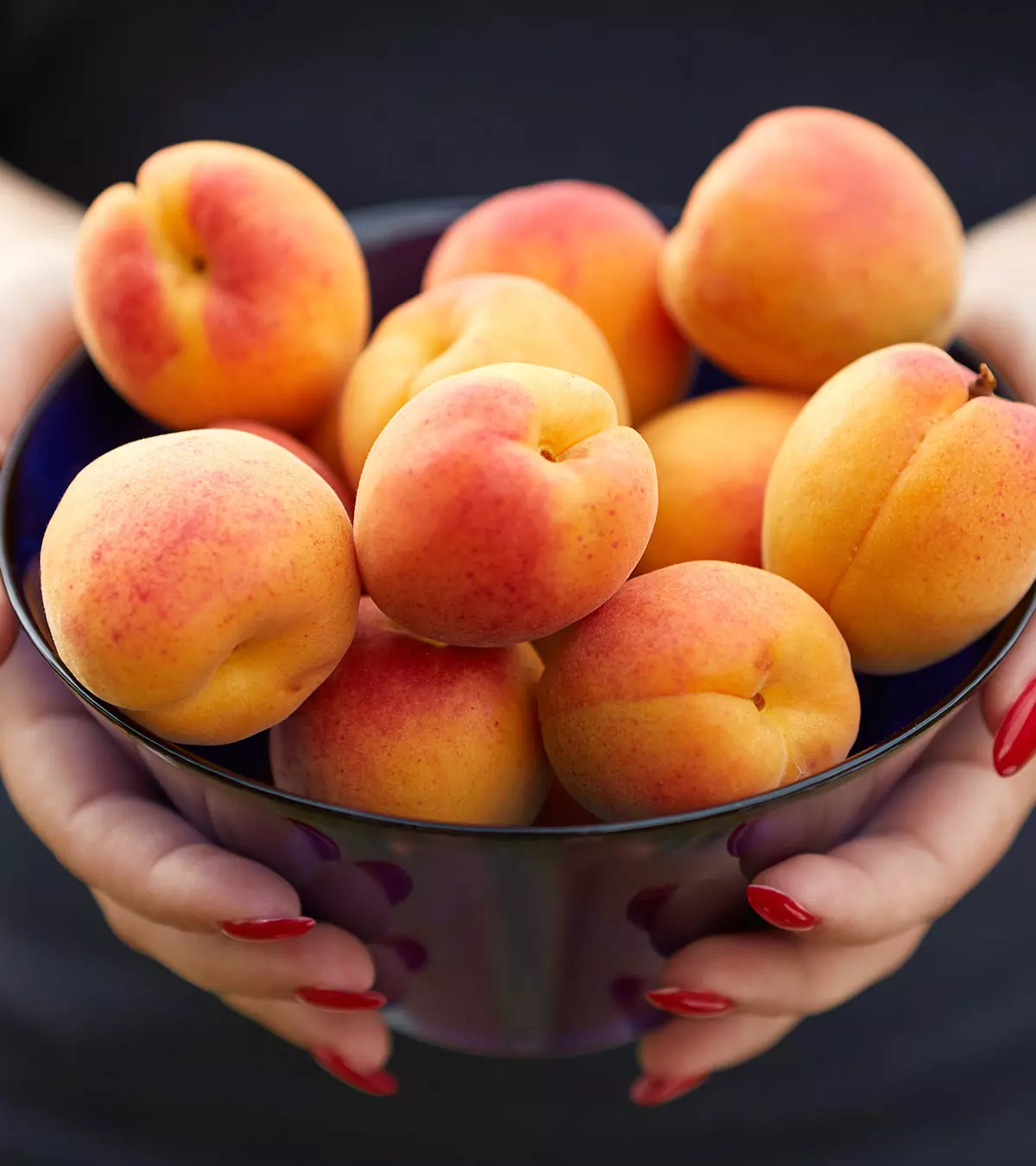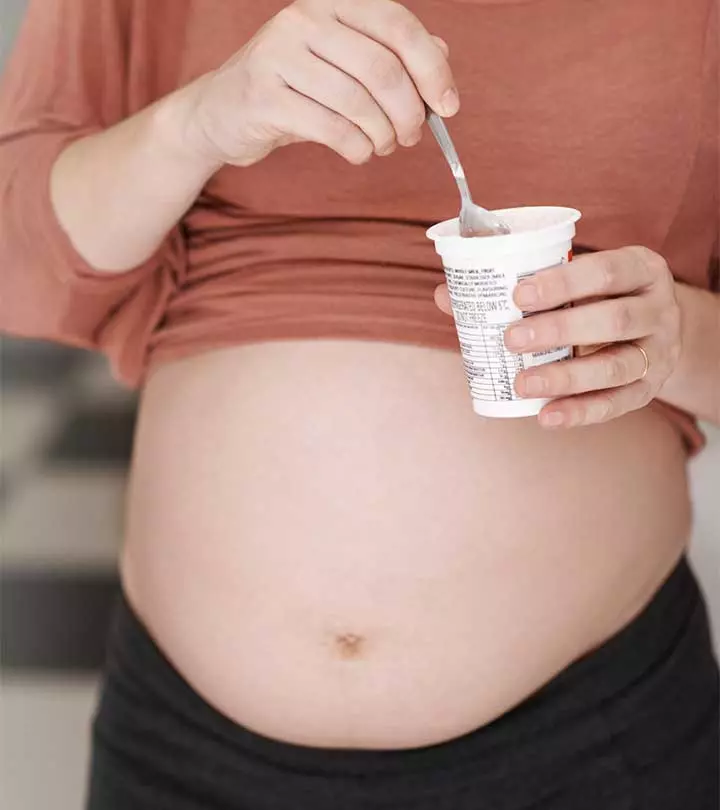
Image: iStock
Probiotics have gained a lot of popularity in recent times owing to the vast benefits they offer. With rising awareness, it is evident that most expecting mothers will want to know if consuming probiotics during pregnancy is beneficial. The Food and Agriculture Organization of the United Nations (FAO) and the WHO define probiotics as live microorganisms that, when administered in adequate amounts, confer a health benefit on the host (1). While several supplements in the market boast various health benefits, probiotics are interesting as they are also found naturally in different food items. Read further to know how probiotics can benefit a pregnant woman.

Key Pointers
- Probiotics are living microorganisms that offer several health benefits to the host.
- They help reduce several pregnancy-associated risks, such as preeclampsia, gestational diabetes, and bacterial vaginosis.
- Probiotics are available in fermented foods and in the form of supplements in the market.
How Do Probiotics Work During Pregnancy?
Different probiotics contain different microorganisms and may cause varying effects. Probiotics aid in regulating and preserving a natural balance of gut bacteria in the body, specifically within the intestines. They stimulate the growth of beneficial bacteria and inhibit the growth of harmful bacteria. Reducing the bad bacterial load might also help prevent infections and improve overall health and well-being (2) (3). In addition, a study reports using probiotics during pregnancy promotes breast milk’s immunoprotective potential, which may reduce the risks of eczemaiA condition characterized by dry, itchy, and inflamed skin the first two years of an infant’s life (4).
 Quick fact
Quick factAre Probiotics Safe During Pregnancy?

Image: IStock
Probiotics are generally considered safe during pregnancy and may not cause adverse effects (6) (7). Also, the current scientific evidence does not indicate the probability of any significant risks or harmful effects on the health of the mother or the fetus (8). However, be cautious while purchasing probiotics to ensure their quality. Consult your healthcare provider before incorporating probiotics into your diet.
 Research finds
Research findsWhat Are The Benefits Of Probiotics During Pregnancy?
Probiotics have been linked to various fetal and maternal health benefits as follows:
- Regulate weight
Maintaining a healthy weight is crucial in pregnancy, as excess body fat may cause several pregnancy complications. A small-scale study showed that probiotics and a healthy diet during and after pregnancy reduce waist circumference, helping prevent obesity (9).
- Improve digestion
Increased progesterone levels during pregnancy cause smooth muscle relaxation, leading to slow digestion in the stomach and intestines. The growing uterus may also exert pressure, causing constipation and slow food movement (10). Eating probiotics while pregnant can promote healthy digestion, increasing its efficiency (4).
- Help combat nausea and vomiting
Nausea and vomiting can affect about 85% of all pregnant women, especially in the first trimester of pregnancy. A study indicates that consuming probiotics during pregnancy can reduce the severity of nausea and vomiting (11).
Diana, a mother of six, opines, “Yes, I was nauseated for the entire pregnancy and somewhat minimally functional during the first half of the pregnancy, but with a history of HG (hyperemesis gravidarum), this was an overwhelming success. This success was achieved primarily through two channels: the probiotic approach and the very low-carb (VLC) diet. I also used a minimum of supplements… I was being regular with the probiotic approach and was taking a much more active approach with supplements and superfoods… My conclusion is that each of the legs of my three-legged approach is vitally important to my pregnancy health – supplements, the probiotic approach, and the VLC diet (i).”
- Treat gestational diabetesiA common metabolic complication of pregnancy that can result in fetal mortality and morbidity
Administration of probiotics during pregnancy while following a healthy diet has been shown to reduce the occurrence of gestational diabetes
(12).
- Reduce the risk of preeclampsiaiA condition characterized by the onset of high blood pressure, protein in the urine, and water retention during pregnancy
A large-scale observational study found that women who had probiotic milk products daily or weekly had a reduced risk of preeclampsia. Probiotics may play a role in modifying inflammation and blood pressure, which are characteristics of preeclampsia (13).
- Treat bacterial vaginosisiA condition caused due to the overgrowth of the normal vaginal bacteria (BV)
Lactobacilli, the healthy bacteria in the vagina, prevent the growth of pathogenic bacteria by producing various antimicrobial agents. A depleted vaginal Lactobacillus population can cause vaginosis. To maintain vaginal health, probiotic tablets containing Lactobacilli can be administered vaginally, which is likely to lower the risk of bacterial vaginosis (14).
- Manage postpartum depression (PPD)iA depressive disorder that may occur in women after childbirth
Many women experience PPD post-childbirth. Studies have shown that regular intake of probiotics positively influences brain activity by interacting with host microbiota (15). Certain species of probiotics may help prevent or treat symptoms of PPD, including depression and anxiety (16).
- Help prevent mastitis
Mastitis is an inflammation of the breast tissue and is reported in breastfeeding mothers (17). Oral administration of probiotics during late pregnancy may help in the postpartum prevention of infectious mastitis (18).
- Reduce symptoms associated with irritable bowel syndrome (IBS)iAn intestinal disorder characterized by abdominal pain, flatulence, diarrhea, and constipation
Upon administration of probiotics, a reduction in the severity of the disease was seen in people with IBS (19). Probiotics may also facilitate intestinal mobility and metabolism (11). However, do not take them without your gynecologist’s consent.
Which Probiotic Is More Useful During Pregnancy?

Image: Shutterstock
Probiotics containing Lactobacillus rhamnosus and Bifidobacterium are the most widely used for long-term benefits (20). Some OTC probiotics may contain other nutrients, such as calcium, folic acid, and omega-3 fatty acids beneficial for pregnant women. However, checking with your doctor to determine the safety of probiotics before consumption is recommended.
How Common Is The Consumption Of Probiotics During Pregnancy?
According to research, about 1.3 to 3.6% of pregnant women in the US and 13.7% in the Netherlands use probiotics to reduce their risk of preterm labor and deliveries.
It is noticed that most women of childbearing age take probiotics for gastrointestinal disorders (8).
 Point to consider
Point to considerWhat Are The Sources Of Probiotics For Pregnant Women?

Image: IStock
Probiotics are available in the market in the form of dietary supplements. In addition, some fermented foods are also a good source of probiotics. However, it is essential to know that not all fermented foods contain good bacteria, as baking and canning can destroy them. Dairy products also contain probiotics, but make sure you pick pasteurized versions.
Some natural foods that contain probiotics are listed below (22).
- Yogurt, including Greek yogurt
- Kefir
- Pickles
- Miso
- Kombucha
- Sauerkraut
- Tempeh
- Kimchi
- Sourdough bread
- Buttermilk
- Some cheeses
 Nutrition fact
Nutrition factFrequently Asked Questions
1. Does probiotic consumption during pregnancy help babies?
Improving prenatal health can have a significant impact on a baby’s well-being. Studies have shown that providing early nutrition with probiotics not only prevents eczema in infants but also has immunomodulatory effects that reduce inflammation and the risk of chronic diseases like obesity (4) (24). Probiotic supplementation in the prenatal period might positively affect the number of beneficial bacteria in breast milk.
2. Who should not take probiotics?
Probiotics have not been shown to be harmful to healthy people. But people with severe illnesses and weak immunity should be cautious as they may fall sick while consuming probiotics (25).
3. Can probiotics help with miscarriage?
There are some speculations that Lactobacillus spp. may have a role in preventing pregnancy loss (26). However, the available data needs to be more conclusive and requires additional research to establish the fact.
4. When should I start taking probiotics during pregnancy?
For a healthy pregnancy, it may be beneficial to start taking probiotics as early as the first trimester. However, it’s essential to consult your doctor for further guidance.
Probiotics contain live beneficial bacteria that have the potential to improve health by inhibiting the growth of disease-causing pathogens. Having popular probiotics, such as buttermilk and Greek yogurt, during pregnancy can provide you with your daily dose of it. However, it is advisable to consult your doctor before starting any probiotic during pregnancy to avoid any risks or drug interactions.
Infographic: Benefits Of Probiotics In Pregnancy
Probiotics can help restore the balance between good and bad microbes. Consuming high-quality probiotics during pregnancy can help reduce the risk of various pregnancy-associated complications. Check the infographic below for the conditions that probiotics may combat for pregnant women.
Some thing wrong with infographic shortcode. please verify shortcode syntax
Illustration: Probiotics During Pregnancy: Safety How They Work & Benefits

Image: Dall·E/MomJunction Design Team
Probiotics are the friendly micro-organisms that live in your digestive tract. Learn how probiotics can help support a healthy pregnancy and baby!
Personal Experience: Source
MomJunction articles include first-hand experiences to provide you with better insights through real-life narratives. Here are the sources of personal accounts referenced in this article.
i. Pregnancy nausea and vomiting – results for pregnancy #6.https://whiningpuker.blogspot.com/2017/06/pregnancy-nausea-and-vomiting-results.html
References
- Probiotics In Food.
https://openknowledge.fao.org/3/a0512e/a0512e.pdf - Probiotics: What You Need To Know.
https://www.nccih.nih.gov/health/probiotics-what-you-need-to-know#:~:text=Probiotics%20might%3AInfluence%20your%20body’s%20immune%20response - Probiotics During Pregnancy.
https://americanpregnancy.org/healthy-pregnancy/pregnancy-health-wellness/probiotics-during-pregnancy/ - Samuli Rautavaet al.; (2002); Probiotics during pregnancy and breast-feeding might confer immunomodulatory protection against atopic disease in the infant.
https://pubmed.ncbi.nlm.nih.gov/11799376/ - Probiotics.
https://ods.od.nih.gov/factsheets/Probiotics-HealthProfessional/#:~:text=The%20seven%20core%20genera%20ofEnterococcus%2C%20Escherichia%2C%20and%20Bacillus. - Hauna Sheyholislami et al.; (2025); Are probiotics and prebiotics safe for use during pregnancy and lactation? A systematic review and meta-analysis.
https://www.medrxiv.org/content/10.1101/2025.01.19.21250133v1.full - Jackie Eliaset al.; (2011); Are probiotics safe for use during pregnancy and lactation?
https://www.ncbi.nlm.nih.gov/pmc/articles/PMC3056676/ - Alexander Jardeet al.; (2018); Pregnancy outcomes in women taking probiotics or prebiotics: a systematic review and meta-analysis.
https://bmcpregnancychildbirth.biomedcentral.com/articles/10.1186/s12884-017-1629-5 - Johanna Ilmonenet al.; (2011); Impact of dietary counseling and probiotic intervention on maternal anthropometric measurements during and after pregnancy: a randomized placebo-controlled trial.
https://pubmed.ncbi.nlm.nih.gov/20970896/ - Pregnancy: How Your Digestion Changes.
https://www.urmc.rochester.edu/encyclopedia/content.aspx?contenttypeid=90&contentid=P09521#:~:text=The%20growing%20uterus%20itself%20canthe%20ways%20to%20prevent%20constipation - Albert T Liu et al.; (2025); Probiotics Improve Gastrointestinal Function and Life Quality in Pregnancy.
https://www.mdpi.com/2072-6643/13/11/3931 - Raakel Luotoet al.; (2010); Impact of maternal probiotic-supplemented dietary counselling on pregnancy outcome and prenatal and postnatal growth: a double-blind placebo-controlled study.
https://pubmed.ncbi.nlm.nih.gov/20128938/ - Anne Lise Brantsæter et al.; (2011); Intake of Probiotic Food and Risk of Preeclampsia in Primiparous Women: The Norwegian Mother and Child Cohort Study.
https://academic.oup.com/aje/article/174/7/807/116217?login=false - Roghayeh Afifiradet al.; (2025); Effects of Pro/Prebiotics Alone over Pro/Prebiotics Combined with Conventional Antibiotic Therapy to Treat Bacterial Vaginosis: A Systematic Review.
https://pubmed.ncbi.nlm.nih.gov/35685517/#:~:text=Abstractpremature%20labor%20and%20spontaneous%20abortions - Kirsten Tillisch et al.; (2013); Consumption of Fermented Milk Product With Probiotic Modulates Brain Activity.
https://www.gastrojournal.org/article/S0016-5085(13)00292-8/fulltext?referrer=https%3A%2F%2Fwww.gastrojournal.org%2F - F.Slykerman et al.; (2017); Effect of Lactobacillus rhamnosus HN001 in Pregnancy on Postpartum Symptoms of Depression and Anxiety: A Randomised Double-blind Placebo-controlled Trial.
https://www.sciencedirect.com/science/article/pii/S2352396417303663 - Hayden Bell et al.; (2013); Breast Disorders During Pregnancy and Lactation: The Differential Diagnoses.
https://jcgo.org/index.php/jcgo/article/view/140/69 - Leónides Fernández et al.;(2016); Prevention of Infectious Mastitis by Oral Administration of Lactobacillus salivarius PS2 During Late Pregnancy.
https://academic.oup.com/cid/article/62/5/568/2462924 - Alfredo Saggioro; (2004); Probiotics in The Treatment of Irritable Bowel Syndrome.
https://journals.lww.com/jcge/Abstract/2004/07002/Probiotics_in_The_Treatment_of_Irritable_Bowel.14.aspx - Lye Huey Shiet al.; (2016); Beneficial Properties of Probiotics.
https://www.ncbi.nlm.nih.gov/pmc/articles/PMC5031164/ - Probiotic Supplements: Refrigerate or Not?
https://internationalprobiotics.org/refrigerator/ - How to get more probiotics.
https://www.health.harvard.edu/staying-healthy/how-to-get-more-probiotics - Manas Ranjan Swainet al.; (2014); Fermented Fruits and Vegetables of Asia: A Potential Source of Probiotics.
https://www.ncbi.nlm.nih.gov/pmc/articles/PMC4058509/ - Laitinen et al.; (2010); Early nutritional environment: focus on health effects of microbiota and probiotics.
https://www.ingentaconnect.com/content/wagac/bm/2010/00000001/00000004/art00009 - Should you take probiotics?
https://www.health.harvard.edu/staying-healthy/should-you-take-probiotics#:~:text=Probiotic%20risks&text=One%20theoretical%20risk%20of%20probioticsconsidered%20dietary%20supplements%2C%20not%20drugs - Aneta Kiecka et al.; (2025); Can Lactobacillus spp. Be a Factor Reducing the Risk of Miscarriage?
https://www.ncbi.nlm.nih.gov/pmc/articles/PMC8702604/
Probiotics During Pregnancy: Top Health Benefits
Watch now to discover how probiotics during pregnancy improve gut balance, ease nausea, and reduce risks like gestational diabetes and preeclampsia. Dive in and learn safe supplement tips!
Community Experiences
Join the conversation and become a part of our nurturing community! Share your stories, experiences, and insights to connect with fellow parents.
Read full bio of Hannah Whittaker
Read full bio of Shinta Liz Sunny
Read full bio of Swati Patwal
Read full bio of Lorraine Teron






